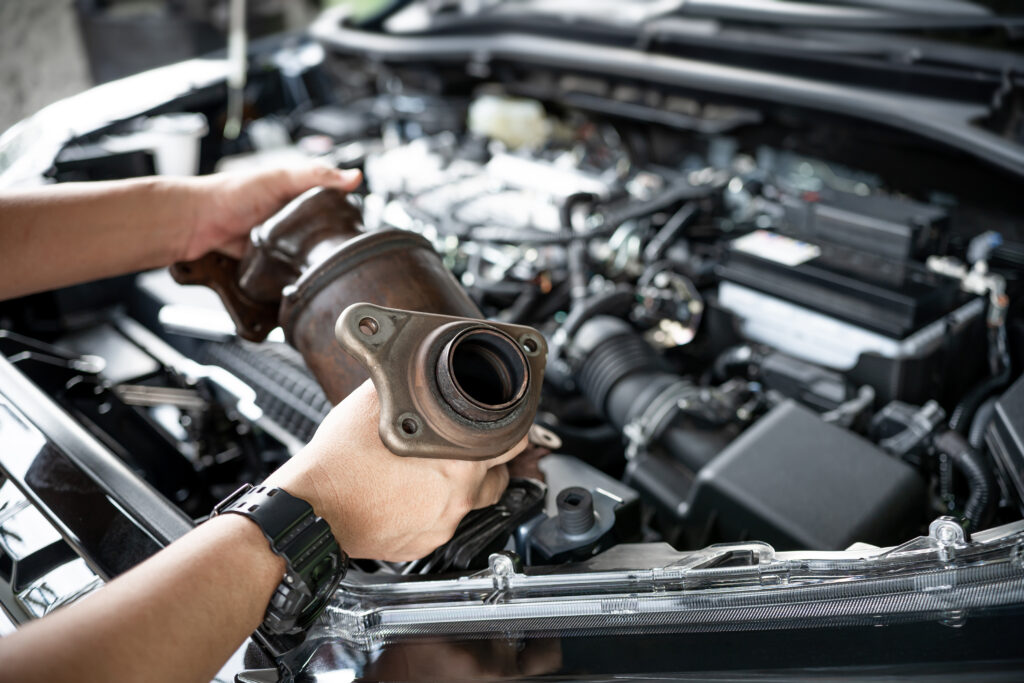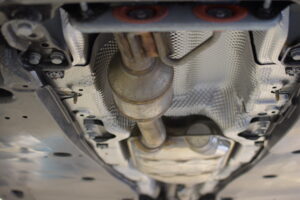What Is The Warranty On A Catalytic Converter
When it comes to vehicle maintenance, the catalytic converter plays a crucial role in reducing harmful emissions and ensuring your vehicle complies with environmental regulations. As an essential component of your car’s exhaust system, understanding the warranty on a catalytic converter becomes imperative. In this blog post, we will delve into the intricacies of catalytic converter warranties, exploring key topics to help you make informed decisions about your vehicle’s emissions system.
Standard Manufacturer Warranties
Most catalytic converters come with a standard manufacturer warranty, usually lasting 5 to 8 years or a specified mileage, such as 80,000 to 100,000 miles. This warranty ensures freedom from defects in materials and workmanship during the specified period. However, it’s crucial to review the warranty terms, as they can vary among manufacturers. Specific conditions may define the warranty’s scope, such as exclusions for damages from accidents, misuse, or improper installation. Understanding these details empowers consumers to navigate potential warranty claims effectively.
Additionally, the warranty may outline procedures and responsibilities in the event of a malfunction, detailing where and how replacements or repairs will be conducted, along with any associated costs. In essence, while the standard manufacturer warranty is crucial, its effectiveness depends on consumers being aware of specific terms and conditions. This knowledge ensures protection during the warranty period and equips vehicle owners to handle potential complications efficiently.
Federal Emissions Warranty
In addition to the standard manufacturer warranty, catalytic converters are also covered by the Federal Emissions Warranty. This warranty, mandated by the Environmental Protection Agency, guarantees the performance and longevity of emission control components, including catalytic converters, for a minimum of 5 to 8 years or 80,000 to 100,000 miles. If your catalytic converter fails within this period, the manufacturer is obligated to replace it at no cost to you.
State Emissions Warranties
Many states have adopted more stringent emission standards than the federal requirements. Consequently, some states offer extended warranties on emission-related components, including catalytic converters. These state-specific warranties may provide coverage beyond the federal requirements, offering added protection for your vehicle’s emissions system.
Extended Warranty Options
In addition to standard manufacturer warranties and federal/state emissions warranties, drivers may also have the option to purchase an extended warranty for added coverage on their catalytic converters. Extended warranties, offered by vehicle manufacturers or third-party providers, can extend the coverage beyond the original warranty period, providing peace of mind for an extended duration.
However, it’s essential to carefully review the terms and conditions of any extended warranty before purchasing, as coverage may vary. While some extended warranties may include protection for catalytic converters, others may exclude emission-related components or impose specific conditions for coverage. Additionally, factors such as vehicle age, mileage, and driving habits may impact eligibility for extended warranty coverage.
Before investing in a Mopar Extended Warranty, it’s advisable to assess your driving needs, budget, and the reliability of your vehicle’s emission system. Consulting with a reputable dealer or warranty provider can help clarify coverage options and ensure you select a warranty that aligns with your requirements. Ultimately, while extended warranties can offer additional protection for catalytic converters and other vehicle components, it’s essential to conduct thorough research and carefully evaluate the terms and coverage limitations to make an informed decision.
The Role of Catalytic Converters
In the complex orchestra of your vehicle’s internal combustion engine, one unsung hero plays a pivotal role in reducing environmental impact, the catalytic converter. Often overlooked, this small, metallic device quietly performs a vital task in mitigating harmful emissions. In this blog post, we’ll explore the indispensable role of catalytic converters, shedding light on their significance in today’s automotive landscape.
A Catalyst for Clean Air
At its core, a catalytic converter is a specialized emissions control device designed to transform toxic gases produced during combustion into less harmful substances before they exit the vehicle’s exhaust system. Acting as a catalyst, this device facilitates chemical reactions that convert carbon monoxide, nitrogen oxides, and hydrocarbons into carbon dioxide, nitrogen, and water vapor—substantially reducing the environmental impact of vehicle emissions.
The Three-Way Catalyst
Catalytic converters are commonly referred to as “three-way catalysts” due to their ability to address three major pollutants found in exhaust gases: nitrogen oxides (NOx), carbon monoxide (CO), and hydrocarbons (HC). Through a carefully orchestrated process of oxidation and reduction reactions, catalytic converters work to break down and neutralize these harmful elements.
Inside the Catalytic Converter
Understanding the inner workings of a catalytic converter is crucial to appreciating its role. The device typically consists of a honeycomb-like structure coated with a combination of precious metals such as platinum, palladium, and rhodium. As exhaust gases flow through this matrix, the metals act as catalysts, promoting chemical reactions that convert harmful pollutants into less harmful compounds.
Environmental Compliance and Emission Standards
Catalytic converters are not just technological marvels; they are integral to ensuring compliance with environmental regulations. Governments worldwide have established stringent emission standards to curb air pollution and promote cleaner air. Catalytic converters play a fundamental role in helping vehicles meet these standards, making them indispensable components in modern automobiles.
Evolving Technologies
As automotive technology advances, so do catalytic converter technologies. Manufacturers continually innovate to enhance efficiency, reduce emissions further, and improve the overall environmental impact of vehicles. From advanced catalyst formulations to more sophisticated monitoring systems, ongoing research and development efforts aim to push the boundaries of emission control.
In the grand scheme of automotive engineering, catalytic converters may be small in size, but their impact on environmental sustainability is monumental. As we navigate the transition towards cleaner and greener transportation, understanding and appreciating the role of catalytic converters becomes crucial. These silent guardians of the environment continue to play a vital role in ensuring that our vehicles not only transport us efficiently but also leave a smaller carbon footprint in their wake.








